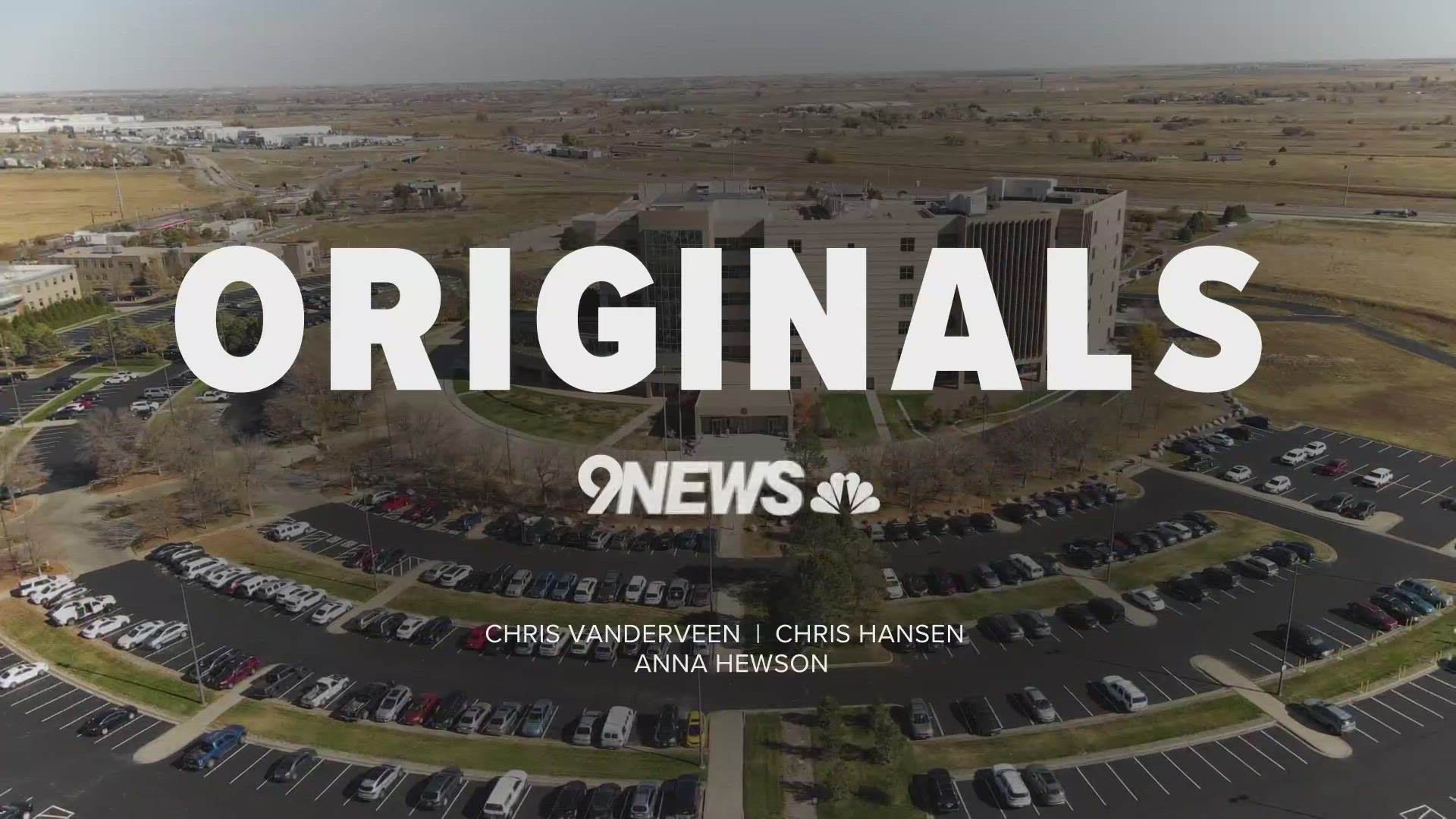ADAMS COUNTY, Colo. — As we investigated UCHealth for its billing practices – more than 15,000 patients sued in five years – we wanted to see how the legal system works for (and against) those patients.
And, so, we spent one morning inside an Adams County courtroom. It’s a scene that unfolds weekly in any number of courtrooms across the state. We asked a lawyer what patients should know once they’re sued.
As the courtroom on the far end of the third floor in Adams County started to fill, confusion mounted. Some were there on eviction cases. Others were there for unresolved debt. A few were there because they couldn't pay a hospital bill. All owed someone money, or at least that’s what the paperwork suggests.
The first thing they noticed was the fact there was no judge to be found. Inside Division 1, a clerk greeted them and handed them a business card. The clerk told them they'd be called to meet individually by people who work for the business listed on the card.
None, on this day, arrived with a lawyer. Had any of these defendants – as they’re known to the court – brought one, their lawyer would have almost certainly told them they were under no obligation to talk to anyone today. Why? Because the people wanting to meet with them were also the people suing them.
I wonder if everyone knows this. I hope so, but it’s not entirely clear. The one-on-one meetings took place quickly in each of the corners of the courtroom. A few even met in a small room that sat just to the right of the courtroom’s entrance.
When Angela walked out of that room, I asked her who was suing her.
“Credit Service Company,” she said.
“Why?”
“I went to UCHealth,” she said. She didn't want me to use her last name. “For some reason, they are suing me, and I have not seen any bills, itemized bills, from anybody.”
She owes nearly $2,700. She said she can’t pay it. She was not sure what to do next.
In our investigation of medical billing practices – specifically UCHealth’s practice of suing patients under what amounts to a legal pseudonym – we found many stories like Angela’s: People lost in a legal system and trying to navigate the system’s inherent complexities on their own.
Adding to their confusion is the fact that many are uncertain how to defend themselves against a medical bill they say they don’t owe. Do they work with Credit Service Company – or CSC – or do they need to work directly with UCHealth?
Our investigation tracked more than 1,500 cases filed by CSC in 2023. Many involved UCHealth debt, but it’s not entirely clear how many because UCHealth now almost exclusively sues patients under the CSC banner.
It's done that since 2020.
Matt Aguero, a Denver area attorney, said that only adds to the confusion.
“It certainly does,” he said.
Aguero, who helps represent people sued by medical providers, bemoaned the legal isolation that frequently accompanies people sued for medical debt.
“People are really alone in these cases,” he said. “And they flounder on their own.”
We now know UCHealth has sued more than 15,000 patients in five years, according to a spokesperson for the largest provider of care in the state. That amounts to eight lawsuits filed per day.
Because of the amounts sought – often between $500 and $5,000 – few patients hire a lawyer to help defend them in these cases.
“That’s the sweet spot for the debt collection companies,” Aguero said, “because that’s exactly where they know nobody is fighting back for this amount.”
The basics those getting sued should know:
- RETURN DATE on SUMMONS – “That’s the day by which you have to respond to the lawsuit.” In county courts, the amount sought are less than $25,000.
- ANSWER – Defendants have a right to file what’s known as an ANSWER to the judge. “It’s a response to the complaint,” Aguero said. “An answer is where a defendant responds to the allegations.”
- DON’T IGNORE – The vast majority of cases end up going to what’s known as a “default judgment.” “It’s where you don’t show up, where you’re sued, and you don’t respond or show up to the court date and the court will enter a judgment against you based on the pleadings of the defendant,” Aguero said. Our analysis found roughly two-thirds of the 1,500 cases filed by CSC resulted in a DEFAULT JUDGMENT.
- COMMUNICATE WITH INSURANCE – You have a right to appeal your claim, or denial of claim, with your insurance company. If you think your claim was processed incorrectly, make sure you communicate directly with your insurance and medical provider.
UCHealth, for its part, insisted it doesn’t want to sue patients.
“At some point when we are doing everything we can to partner with that patient, if we can’t reach that patient, we go another route,” said Jacki Cooper Melmed, UCHealth’s Chief Legal Officer. “99.9% of our patients get through the process without any involvement from a collections agency or a court.”
CSC elected not to comment for our story, pending ongoing litigation in Denver District Court.
RELATED: UCHealth sues thousands of patients every year. But you won’t find its name on the lawsuits.
SUGGESTED VIDEOS: Latest from 9NEWS

